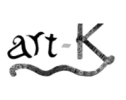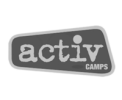Supporting Teaching and Learning Level 3 Certificate
Key Details
-
Price: £950
-
Course Length: 12 months
-
Course Delivery: Classroom, On Demand eLearning, Live Online
-
Guided Learning Hours: 250
-
Accredited by: NCFE Level 3
The Certificate in Supporting Teaching and Learning is designed for individuals currently working, or preparing to work, in support roles within schools or colleges. This qualification provides a more in-depth understanding of the knowledge and skills required to support children and young people’s learning and development in an educational setting.
It is suitable for those working under the direction of a teacher or other educational professional and is typically undertaken alongside a work placement or current employment in an appropriate setting. The course content reflects the practical responsibilities of support staff and aligns with the standards expected in school and college environments.
Learners will develop knowledge, understanding and applied skills across a range of key areas, including:
-
Child and young person development
-
Safeguarding and promoting welfare
-
Communication and professional relationships
-
Planning and delivering learning activities
-
Supporting assessment for learning
-
Promoting positive behaviour and managing challenging behaviour
-
Health, safety and risk management in educational settings
This qualification goes beyond the introductory knowledge provided in the Award and incorporates a practical element, enabling learners to demonstrate competence in real-world situations. It can also serve as a pathway to further qualifications, including the Level 3 Diploma in Supporting Teaching and Learning.
Course Structure
Understand the structure, ethos, and governance of educational institutions, including the different types of schools and the roles of education professionals.
Learn how to assess risk and respond to hazards, ensuring the health, safety, and welfare of pupils and staff in various situations.
Explore legislation, policies, and practices to safeguard children, including recognising signs of abuse and responding appropriately to disclosures.
Learn to communicate effectively, respect professional boundaries, and build relationships based on trust, confidentiality, and mutual respect.
Study patterns of development from birth to 19 years and the impact of factors such as disability, environment, and transitions.
Develop strategies to promote and encourage positive behaviour, support behavioural needs, and manage challenging behaviour constructively.
Gain skills to assist in planning, delivering, and reviewing learning activities under teacher supervision, adapting your support to individual needs.
Understand how to reinforce foundational literacy and numeracy skills across a range of subjects and daily routines.
Learn to support the appropriate and safe use of technology in learning, helping pupils engage with digital tools to enhance their progress.
Learn how to use assessment strategies to promote learning, supporting learners to review their learning strategies and achievements, and working with the teacher to review assessment for learning processes and outcomes.
Learn how to reflect on your performance, respond to feedback, and identify opportunities for continuous personal and professional development.
Further Details
Tuition fees for our NCFE CACHE Level 3 Certificate for Supporting Teaching and Learning
(Early Years Educator) are £2,700 which includes an up front £131.50 registration fee, payable upon acceptance of a place with us.
We also offer a monthly instalment plan: £300 registration fee followed by 12 monthly payments of £210.
There are no formal entry requirements. However, learners must:
-
Be aged 16+
-
Be working or volunteering in a school or college (minimum 100 hours)
-
Have a good standard of written English
-
Be able to complete written and practical tasks
If you do not currently have a placement, we recommend securing one before enrolling on this qualification.
Assessment for this qualification is continuous and designed to capture both your understanding of key concepts and your ability to apply them in a real-world educational setting. It includes:
-
Written assignments for each unit, covering knowledge-based learning outcomes
-
Case studies, reflective accounts, and professional discussions to demonstrate understanding and critical thinking
-
Direct observations in your placement to assess your practical competence in supporting learning, promoting safety, and building relationships
All practical units are assessed in your setting by a qualified assessor. Observations are scheduled to fit around your availability and work environment. You’ll need to complete a minimum of 100 placement hours, and will build a portfolio of evidence drawn from both your coursework and your on-the-job experience.
There are no exams. All assessment tasks must be completed to a satisfactory standard and will be reviewed by both internal assessors and external quality assurers from NCFE.
This course is suitable for:
-
Teaching assistants and learning support assistants
-
Volunteers or paid staff in primary, secondary, or specialist settings
-
Those who have completed the Level 3 Award and want to progress
-
Candidates looking for a comprehensive qualification without the full scope of the Diploma
A work placement is essential to complete this course. Learners must complete a minimum of 100 hours in a school or college setting with regular contact with children or young people.
Do you still have questions?








